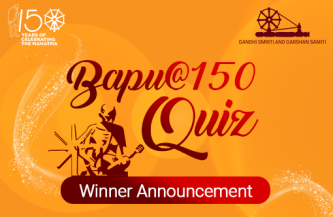Case Study: MyGov enabling participative decision making – Budget 2015

Noted social activist Michael Moore was at his pithiest best while summing up the essence of democracy: “Democracy is not a spectator sport, it’s a participatory event. If we don’t participate in it, it ceases to be a democracy.”
While commentators have, over the centuries, debated the multiple benefits of democracy over other forms of governance, it is its participatory nature that has almost unanimously been recognised as the most outstanding feature. Democracy, in its normative form, while electing a leader through a transparent process, expects that leadership to make decision making a participative process where citizens have an important pro-active voice in policy making. But what is it about participative leadership that makes it so attractive?
First, involvement in decision-making improves the understanding of the issues involved by those who must carry out the decisions. This means the actual effect of the policy is factored in at the stage of policy making itself thereby insulating it from remaining a mere academic exercise. Second, people are more committed to the actions flowing from the policy where they have been involved in the relevant decision-making. The citizens, who will actually be affected by the policy, have become a stake holder in the policy so framed rather than it being handed top down, and thus have more stakes in making the policy work. Third, people are less competitive and more collaborative when they are working on joint goals. Fourth, when people make decisions together, the social commitment to one another is greater and thus increases their commitment to the decision.
Mahatma Gandhi, one of the greatest personalities of twentieth century, was among the first to understand the power of such participative decision making process to mobilize public opinion and this is what contributed to his enormous achievement of converting the freedom movement into a mass movement. Prime Minister Narendra Modi, inspired by the great Mahatma, has often spoken of learning from this great heritage and deploying it in modern context of converting the development and governance paradigm into a mass movement.
It is with this ambition that MyGov was launched by the Prime Minister on 26th July 2014 as a citizen online engagement platform. The avowed aim of the platform was to achieve the following purposes: A) Pro-active citizen participation in policy making; B) Citizen participation in governance tasks; and C) Volunteer participation to achieve synergy in the ideas and discussions in online world with action on the ground.
One of the conscious decisions taken during the conception stage of MyGov platform was to have no activity on MyGov without a buy-in by a relevant department or ministry of the government of India. This was done to ensure that all discussions and tasks on MyGov would have a defined closure point and therefore the valuable time that citizens spend on MyGov would be tied up with a clearly defined proposed action of the government. This way, MyGov would become a useful platform for citizens, retaining the flavour of a free flowing online general discussion forum, while avoiding the trap of only remaining a discussion forum.
This conceptual clarity at the level of the head of government, with a clearly defined mandate to ministries and departments to factor-in the citizen suggestions in discussions and tasks they have initiated on MyGov, in the eventual policy, program or schemes they frame, has resulted in much success for MyGov since its launch. The names of the very popular Pradhan Mantri Jan-Dhan Yojana and the now ubiquitous logo for the Swachh Bharat Abhiyan were generated by contributors on MyGov. The Prime Minister himself has used the MyGov platform to regularly source citizens’ ideas and aspirations for his very popular, monthly “Mann ki Baat” dialogue with citizens.
The confidence generated by these early successes encouraged both ministries and the citizens to engage in crowd sourcing for even broader participation. The Ministry of Railways and the Ministry of Finance, thus initiated discussions seeking ideas from citizens for consideration for the Railway Budget and the General Budget respectively. In what was clearly a first, crowd sourced ideas from citizens, generated on MyGov, became actual government proposals in the respective budgets for the year 2015-16. The implications of a direct platform for citizens, where they could articulate their aspirations and needs to the government, without any intermediary or middlemen, can be seen in some of the far reaching ideas that became actual budget proposals.
For the Railway Budget, suggestions that have been incorporated in the actual proposals include proposals to fit bio-toilets and vacuum toilets in rail coaches to improve cleanliness; providing concessional e-tickets to differently-abled passengers; provision to order food online at the time of booking of tickets through IRCTC; integrating popular private food chains with the pantry network of railways; installation of digital display networks on platforms to provide real time information to citizens and the involvement of ISRO for providing audio-visual warnings to passengers at unmanned level crossings by using geo-spatial technology. A more detailed description of MyGov user suggestions reflected as actual proposals can be read here.
In the General Budget for 2015-16, some of the innovative proposals that have been incorporated include the proposal to enable monetization of gold and launching of sovereign gold bonds; proposal to abolish wealth tax and simplify tax structures; special tax incentive for promotion of Yoga; proposal to make sharing of PAN number mandatory for cash transactions above a specified value; 100% tax benefit for contributions to Swachh Bharat fund; utilization of vast postal network for improving access to banking in remotest corners of India and the proposal to introduce a law to penalize non disclosure of foreign bank accounts and to tackle benami property holdings in India. A more detailed description of MyGov user suggestions reflected as actual proposals can be read here.
These suggestions were thought of by the citizens themselves. They are aspirational in nature in some cases and practical in others. A gold monetization scheme can have transformational affect on the economy. Integrating of popular food chains with rail pantry network and simultaneously enabling the citizens to order food online would, while appearing as simple suggestions, enormously change the passenger experience for those who are travelling by rail network.
The implications of such participative decision making process are enormous. Development as a paradigm of general national discourse is a rather abstruse concept. However, if the broad long term governance framework can be converted into an easily identifiable specific time bound programs, with which the citizen can identify themselves in the immediate term, then it is easier to weave it into the national fabric. The General budget each year is an important policy document of the government, detailing the framework by which the government intends to manage the economy in the medium to long term. However, what is in it for me in the next budget is the most pertinent question by citizens in the build up to each year’s budget. The art of socially and emotionally investing the people in the governance paradigm is to somehow interlink these two strains. With MyGov platform acting a bridge, the citizen now has not to wait till the end of budget process to find out what is in it for them but can pro-actively help in deciding what do they want from the budget. One simple exercise of participative decision making and the budget becomes not a government’s document alone but a document of the people. The emotional commitment gets built-in and the abstruse development paradigm is on its way to becoming a participative mass movement. The platform that is enabling this is the MyGov platform, translating the vision of Prime Minister Narendra Modi into a reality.
Total Comments - 103
Leave a Reply
You must be logged in to post a comment.





 Login
Login
Respected Prime Minister,
Jay Jaganath….! Pranam…! Since few months the Assembly is not going on.So I have a plan on how all discussion will be happened in Parliament. If we will remember in our school life we have period wise class.So why are we not applying here? In assembly it will called as "Morning Afternoon Session". where 3 days i.e Monday & Friday Afternoon and Wednesday Morning will be given chance to discuss on all matters but rest of the session will be discussion on Bills only
Widout any proper fitnes, Govt should not announce or implement the new scheme such as Digital India. In the uniform the post offices are hang on since its imposed. Wastage of time of consumers & Perambulate to Post offices is very big issue due to Internet connectivity. Near about 8 months has been passed but the problem didnot sort out after sending many e-mails to SPO and others. We does not credit advantage of new accounts, FDs, MIS and others from post office as they stop it with uncertain
MODI ji is bar Rajya Sabha me nominated member ki liye aap
1 FARMER
1 DALIT
1 MUSLIMS
1 STUDENT LIKE ME TILAK AGE 24 ELECTRONIC ENGINEER SON OF FARMER
1 STAR LIKE SANIA MIRZA/NEHWAL
OR
1 ARMY WIDOW WOMAN
ko select kare to aapki chhavi Kisan Dalit Muslim ke beech me achchhi hogi and ek student girl/boy ko select karte hi to puri youth student aapka phewar karinge
High Cost of living,long travel from home to office in worst public transports,rising cost of fuels,high bureaucracy to get job,even skilled needs long education history without breaks,boring non creativity based education system,No place to learn living skills like swimming,karate,yoga,music.Long full day working offices,private working timings is even worst.No yearly long holidays to visit other places in India.Born to Die money making machine for survival.No fruitful life for straightforward
Talk of Education and Health Services. Shall continue. I don’t remember visiting a government Hospital or School in my lifetime. This realization happened when i recently visited a government school for CSR activity. This has to improve. If the government cannot run schools its fine. Then organize the education system in India to make it available for all. Let the poor and rich sit side by side and learn. Schools should open the gates of wisdom to all Indians irrespective of their financial st.
The reason for me voting for BJP was plain and simple. I just wanted to see a change and i am definitely happy with what is happening. The world has started recognizing India as a super power. The real potential of our country is yet to be unleashed.
But being a tax payer since last 18 years what i an a citizen want is not subsidies. Rather than subsidies i want better facilities to be made available with the taxpayers money.
Talk of Education and Health Services. Shall continue.
Government is giving funds to state govt for devlopment .. but nothing is devloped in state and nothing devloped for poor people ( voters ) .
Sir LIC of india invest rs 50000cr for the development of Railways and first instalment of rs2000cr is released .you are reqested to add rs 5/- to 30/-in the ticket of the each passenger as premium amount depends on the class .Railway will pay prem to LIC and Lic will cover the risk of rs one lac to each passenger through grp insurance .This will help both Lic Railways as well govt after accident help
I wish to make a simple comment but requires deep thought and deliberation.
I feel that India should gradually switch incidence of tax from Income based to consumption based. Because income is perceived to be hard earned and at the time of distress government is not repaying tax collected from individuals during good times. However, Companies gets benefit of loss set off.
Consumption based tax can given an option to individual to spend or not at a particular price.
I am in full support of what Mr.Devendra Saraf posted a month ago on consumption based tax. Tax should not be applied on what i earned. Rather should be applied on what i spent.
Every Bank transaction should be taxed. Just like Credit cards.
Make taxes affordable so that people pay them happily. The mantra should be how to bring more Inclusion in taxing system. How to bring more people in the nest of taxpayers rather than taxing e few heavily.
There are many steps to be taken, pls put it in open discussions and forum before implementing.Like USA and UK having the highest denomination in their currency note is 100.But we are having Rs1000 note,which is root of all black money transactions.Give a time frame to deposit all the Rs1000 and Rs500 to their respective savings, current or any other bank accounts which will make their money white and government will get high amount of deposits.Encourage all online,card or cheque payment.